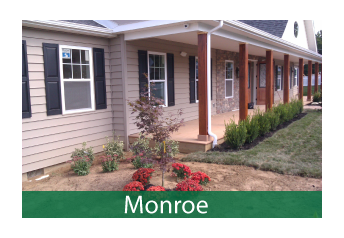Before considering a residential dementia care home, it is worth asking yourself which type of care is right for your relative. Although both living-in-home and residential dementia care have their pros and cons, living-in-home care is often more cost-effective, and residents can enjoy a warm, cosy environment. In addition, both types of care can provide excellent care and support for a loved one. click here for additional information.

Living-in home care is cheaper than residential dementia care
While the costs of residential dementia care homes may seem high, they are actually much lower than assisted living. Depending on where you live and what services you need, you can expect to pay around $1,500 per month or less per person per month. This includes EMI nursing homes, which are funded by the local authority. In addition, living-in-home care is more flexible than residential care. You can choose whichever type of care package best fits your needs.
Residents can be more flexible
The key to ensuring flexibility in residential dementia care homes is to ensure that staff are appropriately trained in health and social care. This includes understanding the specific needs of older people and their families. Care staff must also be well-versed in dementia care and should have a broad understanding of the independent and private sectors in which residents live. If you are looking for a dementia care home in the UK, here are some things to consider.
Residents can live in a warm and cosy environment
The optimum temperature for a resident at a residential dementia care home is approximately 16 degrees Celsius. While the temperature in a residential dementia care home may be regulated to allow for the comfort of residents, a temperature outside of this range could result in negative impacts on health and behaviour. To help residents stay comfortable, care homes offer various ways to adjust the temperature. A cosy, warm environment may also be conducive to better concentration.
Residents can receive excellent care
There are many benefits of residential dementia care in the UK, and the quality of care you receive will vary depending on the facility. While some care homes may offer more than enough amenities, others may not have the right staff to look after your loved one’s unique needs. If you’re looking to place your loved one in a care home, here are some tips to help you make the best choice.
Residents can be frailer
The UK’s population of elderly care homes has changed in recent years, and the health and well-being of residents have also changed. Although government policy encourages care at home, this approach has its limitations. Published descriptions of the health of care home residents lack detail and often use data from social care records. The study’s sample of 227 residents in eleven care homes was selected on the basis of their nursing/residential status and whether or not they were registered with dementia.
Residents can be less suitable for more complicated health conditions
Although residential dementia care homes are generally better suited to those with mild cognitive impairments, some studies show that they are not suitable for residents with more complex health conditions. The health status of residents in these facilities is not described in sufficient detail. Most published reports of resident health use data are obtained from social care records.




